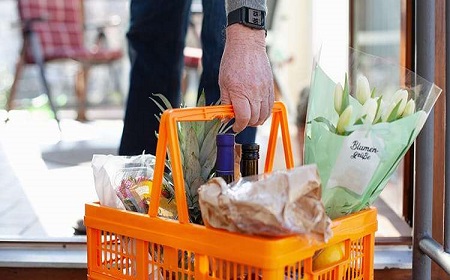Try to walk more
According to the Government, 60% of journeys from 1-2 miles are made by car or van, so if possible, why not try the same journey on foot? Cut down emissions, save money and keep fit at the same time.
Sustainable travel is simply offering more choices to help you reduce the impact of travel on the climate. As with a more energy efficient home, you can also save money at the same time as reducing your impact on the planet.
28% of emissions are from transport, with passenger cars being the largest single contributor (source: Gov.uk). Add holiday travel to that, and it’s clear that changing how we travel is an important way to reduce our overall carbon footprint.
According to the Government, 60% of journeys from 1-2 miles are made by car or van, so if possible, why not try the same journey on foot? Cut down emissions, save money and keep fit at the same time.
Or if you fancy trading up your two feet for two wheels, National Cycle Network has a map of cycle routes that are safe and free of traffic.
For longer distances, or when you might need to carry a lot, then taking public transport could be another way to travel more sustainably.
Although there’s still a financial cost associated, it could be cheaper than driving. And with many more passengers on board, the emissions per person will be lower than if everyone had driven instead.
If you're thinking of buying an electric car, but worried about the extra costs to install a charging station, then worry no more.
With the Electric Vehicle Homecharge Scheme (EVHS), the government has a commitment to pay up to 75% (capped at £350 inc VAT) of the cost of buying and installing an EV charge point in your home.
Get a discounted rate and further £50 off on us when you purchase an electric vehicle charge point from Octopus Energy.
Shostra Bank receives a fee from Octopus Energy for customers it introduces to them that subsequently purchase products or services from Octopus Energy. This fee is passed onto you as a thank you for your climate efforts.
Looking further afield, the next thing to consider is holiday travel. Using Atmosfair data, The Guardian estimated that a return flight from London to New York creates 986kg of CO2 per person. That’s more than the average person produces in a whole year in South Africa.
Although the aviation industry is committing to becoming net zero by 2050, in the meantime there are still ways to make your holidays more sustainable.
If you’ve never had a holiday nearer home, then why not give that a go? COVID-19 has meant more people have chosen to holiday at home and shown that you can relax and have fun without stepping on a plane.
Reducing how frequently you fly, or flying shorter distances, might feel like an achievable goal. But when you do need to travel further, initiatives like the Skyscanner 'Greener choices' label can help highlight the flights which emit less CO2.

While it’s easy to point to our homes or travelling as potentially the largest contributors to our carbon footprints, our smaller everyday choices could also have an impact.